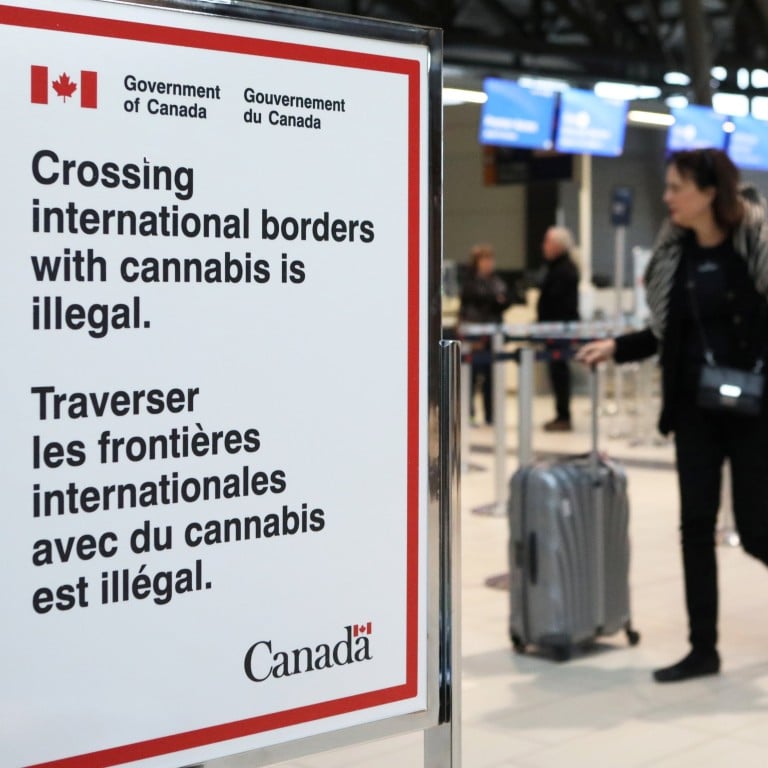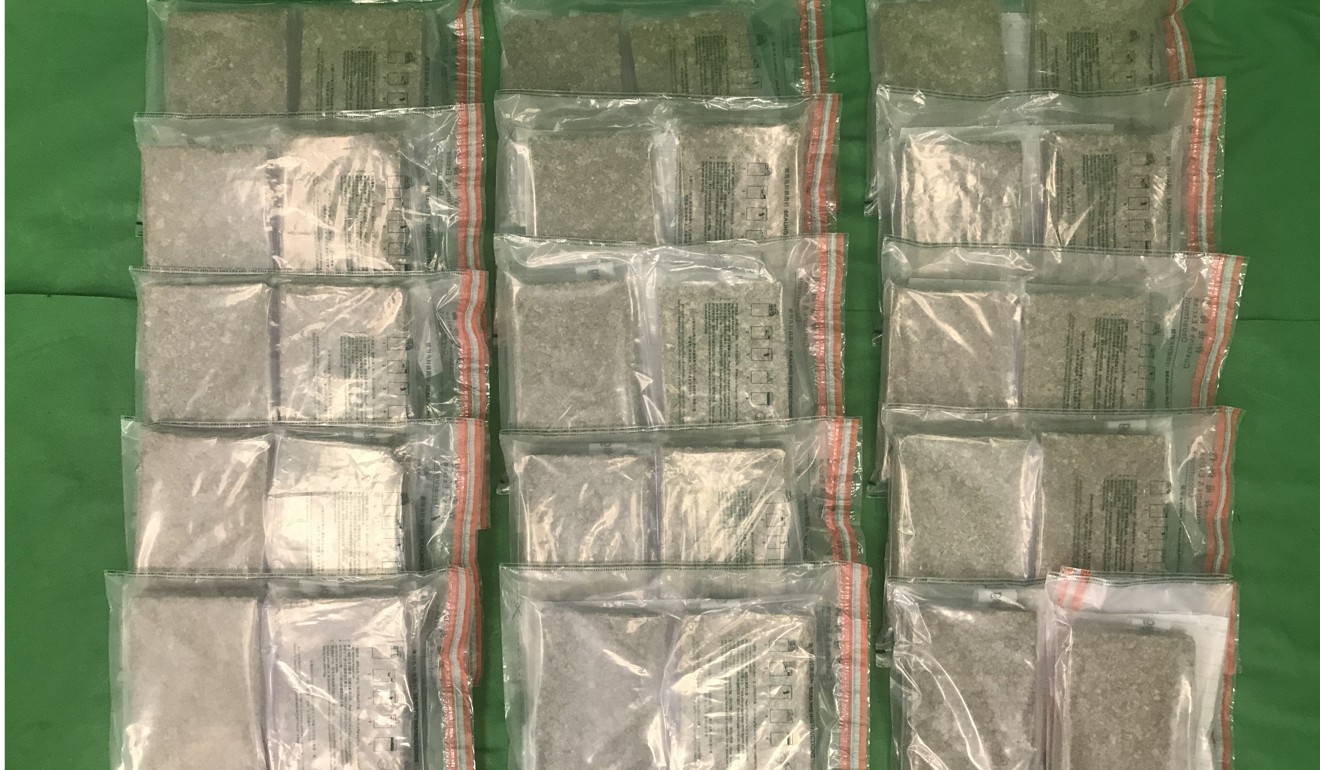
Hong Kong works with Canada to curb cannabis smuggling at source amid spike in trafficking after legalisation
- Amount of drug taken by Customs and Excise Department in first five months of year almost equals total taken in 2018
- Packages sent by post on rise as city officials aim to stop trafficking at source
Customs and law enforcement officials in Hong Kong and Canada are boosting cooperation after an alarming spike in cannabis smuggling to the city has been linked to recent legalisation in the North American country.
The amount of cannabis smuggled into Hong Kong from Canada in the first five months of this year has nearly matched the figure for the whole of 2018, Hong Kong customs officers said last week.
Of the 170kg of cannabis seized by city customs between January and May, around one-third came from Canada. Much of it was sent by post after the North American country legalised the drug last October.
Over that period, 53kg was trafficked to Hong Kong from Canada in 11 cases, compared with 56kg in 29 detections in all of 2018.

Hong Kong’s customs chief said smugglers were taking advantage of the legal change in Canada to open a new trafficking route to the city. He said some of the haul was from tourists returning to the city with a souvenir.
The Customs and Excise Department said it was stepping up cooperation with its Canadian counterparts to curb the smuggling trend.
Customs Commissioner Hermes Tang Yi-hoi expressed concern over the increasing seizures to the country’s customs chief during a meeting of the World Customs Organisation in Brussels on Thursday.
“Some travellers bought cannabis as a souvenir for fun, while drug syndicates are also making use of the new legislation to smuggle cannabis into Hong Kong and expand their market in the city,” Tang told the Post.
“We found more drugs parcels lately as smugglers saw lower risk by this means. After we voiced our concerns at the meeting, the Canadian customs chief had agreed to step up intelligence exchange with us, especially on particular targeted syndicates, so as to confront the problem at the source.”
Tang also said he would seek help from the Canadian customs authority to remind travellers at control points that cannabis could be banned in other jurisdictions.
In the biggest case this year, a 36-year-old male passenger arrived in Hong Kong from Vancouver in February, concealing 30kg of cannabis buds inside his two suitcases with an estimated value of HK$6.2 million (US$793,000).
Teen drug mule who smuggled HK$20 million of cocaine jailed for nearly 18 years
Since last October, those aged 18 and above in Canada are allowed to possess and share up to 30g of cannabis with others.
Sales of dried or fresh cannabis and cannabis oil from a licensed retailer, and making cannabis products, such as food and drinks, at home was also legalised.
From around October this year, it will also be legal to sell edible cannabis products and concentrates.

Official figures also showed customs officers uncovered a total of nine incidents of smuggled cannabis products, such as cannabis confectionery, hemp liquor and cannabis-infused tea, in the first five months of this year.
A customs spokesman added that products containing cannabis or tetrahydrocannabinol (THC), such as food products and drinks, might be available for sale in some overseas jurisdictions, and urged travellers to Hong Kong to pay extra attention.
Smearing cannabis on your face: the latest Asian beauty craze
“Members of the public should pay attention to the packaging labels of the products concerned while making purchases to avoid breaching the law inadvertently,” the spokesman said.
“They must also note that any illicit import of cannabis or any products that contains controlled cannabinoids such as THC constitutes a criminal offence under the Dangerous Drugs Ordinance. Ignorance is not an excuse and prosecution will be initiated when evidence justifies.”
Overall, customs officers arrested 49 individuals for smuggling cannabis in the first five months of this year, compared with 77 arrests made in 2018, when a total of 141kg of cannabis was seized.
Cannabis is treated as a dangerous drug in Hong Kong. Trafficking the drug into the city carries a maximum sentence of life in prison, while possessing or smoking it carries a potential seven years behind bars.

